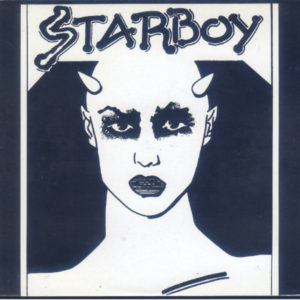I believe there is an Illuminati and I believe there are forms of devil worship, what I do not believe however, is that the two are necessarily interwoven and that there’s a level of success in the music business that’s attainable only to those who belong to either one or both of those groups.
When people try to discredit, say, a Beyoncé and attribute her success to her being a member of some sort of secret society, without real evidence, I think they’re unknowingly discrediting the role hard work, talent and patience plays in all of our lives, not just in the lives of entertainers. That said, do I think that there are musician who use symbolism rooted in the Occult to either represent artistic sophistication or just for shock value? Sure. Are there musicians who worship the devil or are fascinated with him and use their art to describe that relationship? I’m sure there are; the ying and yang nature of life tells us that if there are successful gospel artists, then surely there’ll be artists on the other end of the spectrum. But whether those artists have ulterior motives and use their art as a recruitment platform for the darkside is a topic for another day. What I think is more pertinent now though is to take a closer look at The Weeknd, an artist who seems to wear his fascination with Lucifer on his sleeve and that sleeve is now being mistaken for something else around a continent that he shares an origin with Wizkid, his new pseudo-adversary.
Starboy, the name and the identity, has been possessed from Wizkid much to the displeasure of an entire continent or at least most of it because being of Ethiopian descent, Weeknd does have a significant fan base in the continent as well. Not to mention the millions of fans around Africa who pay attention to mainstream music and couldn’t care less about the Weeknd’s connection to the continent. After being a patriot and rooting for Team Wizzy, it’s time for me to play devil’s advocate and see thing from the other side, the darker side.

Wizkid
I’ve been asking myself, what if “One Dance” never happened and Wizkid had never gotten signed to Sony, would Weeknd still have been aware of the word “Starboy” and used it to build an entire album campaign? The more I think about it, the more I think that the answer is yes. But you see, The Weeknd is a super-mysterious singer who generally avoids interviews, so there aren’t a lot of opportunities to get inside his head and understand the thought process behind his records. This leaves a lot of space for numerous conspiratorial articles to be written about his music. This article could be just another one of those or it could highlight that “Starboy” had a much darker, sinister meaning and lay the debate about the source of the name to rest.
The mysterious, multilayered nature of The Weeknd’s music is best typified by a trilogy of music videos that tell a continuous story, even though the videos weren’t released in sequence. The trilogy revolves around Weeknd’s relationship with some sort of deity that controls his success in the music business and his relationship with the deity goes up and down.
Can’t Feel My Face – July, 2015
This is arguably the song that blasted Weeknd into the mainstream, the video depicts the lengths that singer will go, or indeed has gone, to achieve success. At the start of the video, Weeknd is seen performing on stage and the reception isn’t good – the crowd is booing, there are yawns here and there and people are generally disinterested, Weeknd even gets a drink thrown in his face. Then, out of nowhere, an old, suspicious-looking man sitting in the audience literally sets Weeknd on fire and the audience liven up and start singing along and dancing to his music – it’s like magic! The old man could be representative of the devil and the video could be the depiction of an exchange between him and the Weeknd after which the singer’s career was set on fire and he became a superstar after years of struggling. If that exchange is for fame and success, then what is the Weeknd giving the old man in return?
Tell Your Friends – August, 2015
In the second part of the trilogy, the Weeknd is seen trying to free himself from the devil’s stranglehold – presumably the exchange was for his soul. We see Weeknd walking hurriedly past a burning bush, which could be God manifesting himself to Weeknd the same way he did to Moses in a theophany that made him retrace his steps to him or it could be a continuation of “Can’t Feel Myself” where Weeknd was set on fire but he wasn’t consumed by the flame, again à la Moses. Weeknd then seems to bury his old self in the desert and appears like he’s ready to embrace his new fame and wealth. But somehow that doesn’t last very long, the devil is lurking, depicted again by that suspicious-looking man with a struggle face. Weeknd commits his second act of defiance in the video by shooting him and driving off in a shiny Bentley – he’s free to enjoy his wealth and fame without the devil’s strings, or so he thought.
The Hills – May, 2015
The last part of the trilogy is easily the darkest and the one that poses as many questions as it provides answers. Weeknd emerges out of a car crash and lets two female passengers out of his vehicle, it’s been turned upside down. However, rather than being thankful or somber, the women rain abuse on him which Weeknd ignores as he walks away, gingerly. The car later explodes leaving Weeknd, stranded without the vehicle he used to come into this wealthy neighbourhood – the (Hollywood) Hills. The Weeknd keeps on walking until he enters into a mansion, goes upstairs and sees the old man again on a bed with two women, supposedly the two women that survived the crash. He looks surprised. This story would have tied into the first two perfectly, except the car that Weeknd crashed wasn’t a Bentley and we do not see how the two women got in it, which makes me believe that there’s a fourth part of this story further down The Weeknd’s catalogue, remember that the storyline isn’t sequential.
But what does this have to do with Starboy?
The video for “Starboy”, the new single, has much brighter visuals but it didn’t start that way. It begins with The Weeknd being tied to a chair, and eventually getting suffocated by an unknown man. The man turns out to be The Weeknd, except without his signature dreadlocks, which indicates some kind of transition. The singer then goes on a rampage, destroying all the trophies and accolades that he acquired with a beaming red cross that could mean a number things.
It could mean that he acknowledges that all his achievements up until that point was because of that soul trade in “Can’t Feel My Face” and he’s using the Light to destroy his past and move on to a brighter future. Weeknd also dons a large cross around his neck and the pussycat transforming into a large cat is symbolic of something, I’m sure. The devil isn’t present in “Starboy” but both in this video and in the one for “Tell Your Friends”, The Weeknd is seen killing his old self and deriving some level of enjoyment from it. It’s a ritual that’s disturbing and points to an eternal, internal struggle.
So what does this have to do with Wizkid?
Wizkid might be the custodian of the name “Starboy” right now but the term is so commonplace that Weeknd could have been inspired by any number of things besides Wizkid. Giving Weeknd’s fascination with the trade between fame and his soul and the devil being the middleman in that transaction, one very likely source is a musical from the singer’s native Canada titled “Star boy”.

The story revolves around a would-be rock singer who sells his girlfriend’s soul to the devil for stardom in Las Vegas.
See a pattern? The Weeknd could be telling us that he is the Starboy. He has another video “Often” where he killed an unfaithful girlfriend, so this narrative isn’t farfetched and exchanging one’s soul for fame is already a recurrent theme in Weeknd’s music. To my mind, Weeknd could either be tying this story to the previous trilogy or constructing a new story with the Starboy storyline as his base, we’ll just have to see how things unfold.
It’s unfortunate that Starboy has become such a contentious title but the more I look, the more I see that Weeknd is a man that’s in his own world. His musical mystic is part of the allure, it’s one of the reason’s why he’s been able to amass a global cult-like following. The singer seems to be telling his own dark stories about the trappings of fame and success, he appears to be telling the world that he’s made some interesting trade-offs to get where he is now and no one knows if the exact scenarios are based on real life, no one knows where these stories will go next. You can be a sceptic about devil worship or Lucifer fascination, and that’s fine, but when people show me who they are, I tend to want to believe them.
The Weeknd is now an artist in transition but you wonder if he’s totally transitioned or whether he’s struggling with the demons from his past. At either rate, the world has been given another glimpse into the mind of an artist who’s consumed in his own struggle, it’s just a shame that Wizkid became collateral damage.


